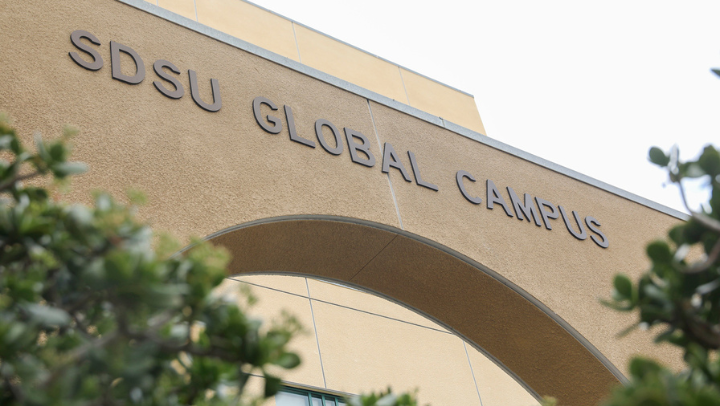SDSU to Partner with City of Tijuana to Address Shared Concerns and Opportunities

Led by SDSU Provost Nancy Marlin, the universities and the City of Tijuana will work together on various projects of multiple disciplines, such as emergency response, public health, the environment and international business.
“SDSU has a long history of working on cross-border issues and this partnership will formalize and further that commitment,” Marlin said. “From homeland security to emergency response, our two cities must work together to address problems that will affect both sides of the border, and this partnership will allow us to do that.”
The partnership will also work to enhance the lines of telecommunication between San Diego and Tijuana by using SDSU’s Visualization Center (Viz Center) and its geographic imaging capabilities. The Viz Center will play a major role by using its mapping telecommunications expertise to establish ways to enhance emergency responses to natural disasters, such as wild fires and floods, as well as other concerns of mutual interest.
“Wild fires don’t care about borders,” said Eric Frost, co-director of the Viz Center. “San Diego and Tijuana will have to work together if something of that magnitude involves both countries. By connecting SDSU resources and expertise with the City of Tijuana, we will be better equipped to handle such an emergency. We must do this before the emergency to be most effective and this agreement will help accomplish that by beginning daily interaction that will assist both universities and countries”
Tijuana Mayor Kurt Honold-Morales and Secretary of Police Luis Javier Algorri will also be present at the signing. The officials were among a group of 10 who visited the Viz Center earlier this summer to learn more about the center’s role in preparing for natural disasters and other emergencies.
Frost said establishing the partnership between the universities and the City of Tijuana is a significant first step in addressing the mutual problems and opportunities in the border region.
“Universities are neutral parties, so we can help both countries by addressing those shared problems and coming up with shared solutions that will better both communities,” Frost said. “This cross-border expertise can then be shared with many other regions of the world, particularly with humanitarian assistance and disaster response.”
For example, an SDSU study released last year discussed water quality at the Mexico-San Diego border. Under the agreement, SDSU will have the opportunity to work with environmental scientists at La Universidad Xochicalco to compare the work being done and come up with ways to help solve the health and environmental challenges facing both populations. The solutions to these challenges can then be used around the world in other border regions, while enriching the education of students from both countries.
Other projects may focus on shared homeland security and emergency response, health services and disease surveillance, law enforcement, border governance, and international business and security.



